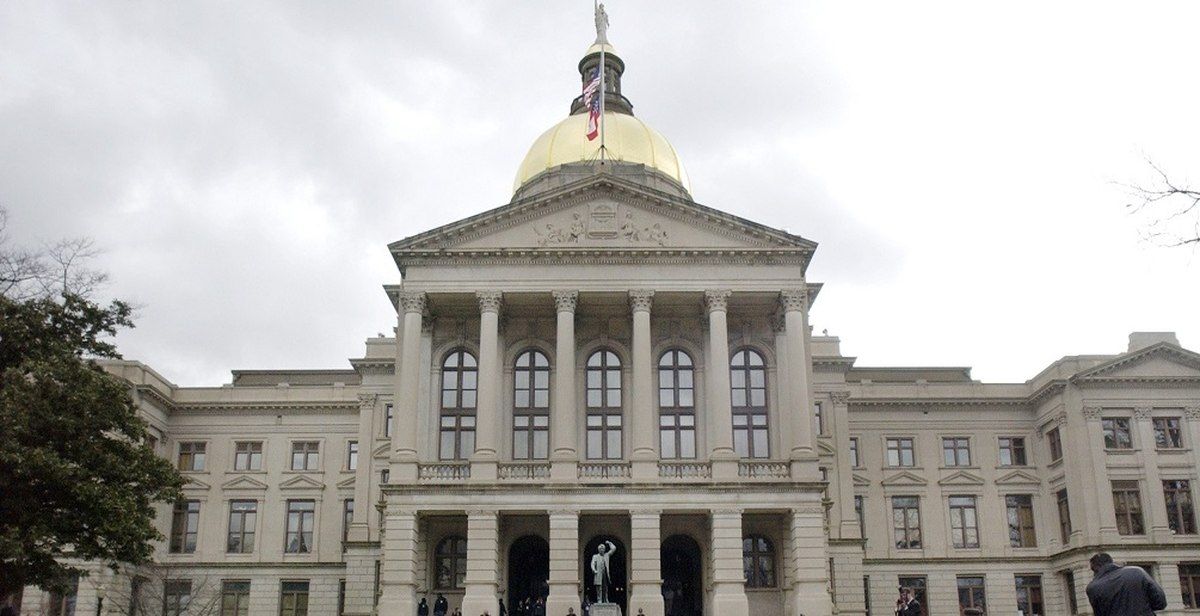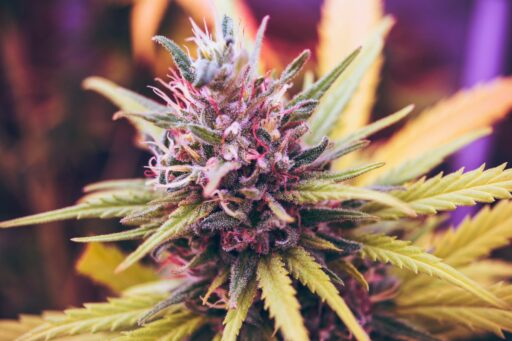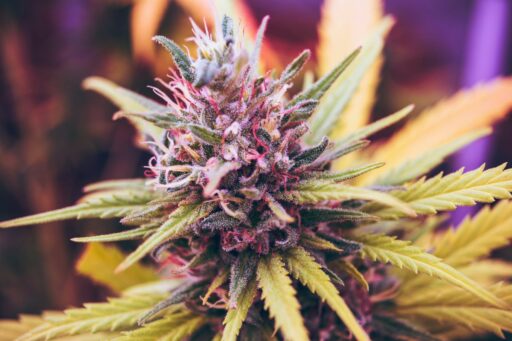As Georgia grapples with the complex issue of marijuana legalization, various factors come into play that shape the state’s approach. From local decriminalization efforts to the economic and social implications, public opinion, and the political climate, the debate is multifaceted. This article delves into Georgia’s current legal landscape regarding marijuana, the potential impacts of legalization, and the challenges and opportunities that lie ahead on the path to legalizing cannabis.
Key Takeaways
- Georgia has seen a patchwork of local decriminalization efforts, with cities like Atlanta and Clarkston leading the way, while statewide penalties remain strict.
- Legalization could bring significant economic benefits to Georgia, including potential revenue from taxes and job creation, alongside impacts on law enforcement and the judicial system.
- Public sentiment in Georgia is shifting towards a more favorable view of marijuana legalization, influenced by national trends and the positions of political parties.
- Georgia’s medical marijuana program is currently limited to low THC CBD oil, but there’s a growing market for THCA products, which faces potential regulatory changes.
- Learning from other states’ experiences with legalization, Georgia faces regulatory hurdles and opportunities to establish a legal market that balances safety with accessibility.
Current Legal Landscape of Marijuana in Georgia

Local Decriminalization Efforts
In the evolving landscape of cannabis laws, Georgia has seen a patchwork of local decriminalization efforts. Fulton County, for instance, decriminalized marijuana in its unincorporated areas, setting a precedent for other jurisdictions. These local movements reflect a growing trend towards more lenient policies on marijuana possession and use.
While federal enforcement has historically targeted criminal networks, recent shifts indicate a focus on allowing states to craft their own marijuana policies. This change in direction has been echoed in online discussions, with platforms like Budding Trends highlighting the complexities of marijuana reform and its intersection with social equity.
The debate on marijuana legalization continues to evolve, with local decriminalization efforts marking significant steps towards broader reform.
Despite these efforts, Georgia’s legal framework remains a mosaic of varying regulations, with some areas reducing penalties for possession of small amounts, while others maintain stricter enforcement. The table below summarizes the current state of decriminalization efforts in key Georgia localities:
Statewide Criminal Penalties
In Georgia, the legal repercussions for marijuana possession are contingent on the amount held. Possession of up to one ounce is considered a misdemeanor, potentially leading to fines and mandatory drug education for first-time offenders. Subsequent offenses can result in increased fines and jail time.
Possessing over an ounce of marijuana escalates the offense to a felony, with severe penalties including a minimum of one year to a maximum of ten years imprisonment. This stark contrast in punishment underscores the state’s stringent stance on drug control.
City and county level punishments for misdemeanor possessions vary, reflecting a patchwork of enforcement across the state. The table below outlines the basic structure of penalties for marijuana possession in Georgia:
| Amount Possessed | Offense Level | First Offense Penalty | Subsequent Offenses Penalty |
|---|---|---|---|
| Up to 1 oz | Misdemeanor | Fine up to $300 | Fine up to $500, jail time |
| Over 1 oz | Felony | 1 to 10 years jail | Same as first offense |
The disparity in penalties between possessing under and over an ounce of marijuana is indicative of the state’s approach to drug offenses, with a clear demarcation between personal use and intent to distribute.
Medical Marijuana Regulations
In Georgia, the use of low-THC CBD oil was legalized for medical purposes on April 16, 2015. However, the state still prohibits in-state cultivation, production, and sale, creating a complex situation for patients and providers. Despite the legalization of CBD oil for medical use, the lack of a comprehensive system for cultivation and distribution poses significant challenges.
Recent legislative efforts indicate a push towards refining the state’s medical marijuana regulations. A notable proposal includes raising the legal age to purchase medical marijuana from 18 to a higher threshold. This move reflects a cautious approach by lawmakers in adjusting policy in response to evolving perspectives on marijuana use and its regulation.
The disparity between state and federal law continues to complicate the landscape. While Georgia has taken steps to legalize certain forms of medical marijuana, federal law remains unchanged, leading to a policy gap that affects patients and providers alike.
The table below summarizes key aspects of Georgia’s medical marijuana regulations:
| Aspect | Status in Georgia |
|---|---|
| Low-THC CBD Oil | Legalized for medical use |
| In-State Cultivation | Illegal |
| Production and Sale | Illegal |
| Legal Age to Purchase | 18 (proposed increase) |
| Federal Law Alignment | Policy gap with federal law |
Economic and Social Implications of Legalization

Potential Revenue and Job Creation
The prospect of marijuana legalization in Georgia brings with it the potential for significant economic benefits. The creation of new jobs and additional revenue streams could invigorate the state’s economy, particularly in sectors related to agriculture, retail, and regulation.
- Agriculture: Cultivation and farming of marijuana could become a new industry in Georgia, providing jobs in rural areas.
- Retail: Dispensaries and related businesses would require a workforce for sales, management, and security.
- Regulation: State and local governments would need to expand departments to oversee the marijuana industry.
The economic impact is not limited to direct marijuana sales; ancillary businesses such as security, legal services, and software development also stand to benefit.
According to a new analysis, Georgians living in rural counties are expected to experience annual average increases of 5,611 new jobs, $862.4 million in economic output, and $477.3 million in additional wages. These figures underscore the transformative potential that marijuana legalization could have on local economies, especially those that are currently struggling.
Impact on Law Enforcement and Judicial System
The decriminalization of marijuana in Georgia could significantly alter the landscape for law enforcement and the judicial system. With fewer marijuana-related arrests, police resources could be redirected towards more serious crimes. This shift may also lead to a reduction in court cases and prison populations, alleviating the strain on the judicial system.
- Reduction in marijuana-related arrests
- Decrease in court cases
- Potential for lower prison populations
- Reallocation of law enforcement resources
The reallocation of resources could foster a more efficient law enforcement system, focusing on pressing criminal issues rather than minor drug offenses.
However, the transition to legalization poses challenges, such as establishing new protocols for police officers and ensuring that past convictions do not continue to unfairly affect individuals. The path forward requires careful consideration of these factors to ensure a just and equitable system.
Public Health Considerations
The debate on marijuana legalization in Georgia extends beyond legal and economic factors, touching on public health considerations. Concerns about the potential for abuse, addiction, and impaired driving are at the forefront of the discussion. The long-term effects of cannabis, particularly on young adults and developing brains, are also a critical area of study.
- Abuse and addiction are significant risks associated with marijuana use.
- The impact on mental health is a complex issue, with studies indicating both therapeutic benefits and risks of exacerbating conditions like anxiety and depression.
- Driving impaired due to marijuana use is a public safety concern, with ongoing debates about how to effectively measure and enforce sobriety.
The balance between the medicinal benefits and the risks of recreational use continues to shape the public health narrative in Georgia. As the state considers legalization, the implications for healthcare systems, educational campaigns, and regulatory frameworks are being carefully weighed.
Public Opinion and Political Climate

Shifts in Public Sentiment
In recent years, Georgia has witnessed a significant shift in public sentiment regarding marijuana legalization. Two-thirds of Georgians now support the decriminalization of cannabis possession, reflecting a broader national trend towards more liberal cannabis policies. This change in attitude is particularly notable given the state’s historically conservative stance on drug laws.
Public opinion polls consistently show a growing acceptance of marijuana, with a clear majority favoring legalization for adult use. This shift is driven by a range of factors, including increased awareness of the potential medical benefits of cannabis, the desire to reduce the burden on the criminal justice system, and the recognition of the economic opportunities that a legal marijuana market could provide.
The evolving public sentiment in Georgia mirrors a nationwide reevaluation of cannabis laws, suggesting that the state may be approaching a tipping point in its marijuana policy debate.
Political Parties’ Stance on Marijuana
In the evolving landscape of marijuana policy, Georgia’s political parties have shown varied stances. Under Gov. Brian Kemp, there has been a noticeable shift among Georgia Republicans, who are now increasingly open to the idea of legalizing marijuana, a move that has left some local conservatives perplexed.
- Democrats: Generally support decriminalization and legalization, advocating for reform as part of social justice measures.
- Republicans: Historically opposed, but recent trends indicate a growing acceptance, especially for medical use and potential economic benefits.
- Libertarians: Consistently support legalization, emphasizing individual freedom and reduced government intervention.
While the national debate continues, Georgia’s political climate reflects a microcosm of this larger conversation, with each party weighing the potential benefits against their ideological frameworks and constituents’ expectations.
Influence of National Trends on Georgia’s Debate
The national conversation on marijuana legalization has undeniably influenced Georgia’s own debate. High-profile political events and policy shifts across the country act as a barometer for Georgia’s policymakers, reflecting a broader acceptance or resistance to the idea of legal cannabis.
- National political figures and their stances on marijuana have swayed public opinion.
- State-level legalization movements provide a template for Georgia to consider.
- Economic successes in states with legal marijuana markets are closely watched by Georgia’s legislators.
The interplay between federal signals and state actions creates a complex backdrop for Georgia’s legalization discussions. While Georgia has its unique considerations, the national trend towards legalization cannot be ignored as it shapes the local political and social landscape.
The following table illustrates the current status of marijuana legalization in states surrounding Georgia, highlighting the regional context within which Georgia’s debate is situated:
| State | Medical Marijuana | Recreational Marijuana |
|---|---|---|
| Florida | Legal | Illegal |
| Alabama | Legal | Illegal |
| Tennessee | CBD only | Illegal |
| South Carolina | Illegal | Illegal |
| North Carolina | CBD only | Illegal |
This regional snapshot shows a mix of policies, with some neighbors having taken steps towards legalization or decriminalization, potentially exerting pressure on Georgia to reevaluate its stance.
Challenges and Opportunities in the Path to Legalization

Regulatory Hurdles for a Legal Market
As Georgia contemplates the legalization of marijuana, regulatory hurdles present significant challenges. The state must navigate a complex landscape of laws and guidelines that can often be ambiguous and contradictory. For instance, the current status of cannabis businesses is mired in confusion, with some industry experts citing a "nightmare of ambiguity" due to poor regulation.
The transition from a legal gray area to a fully regulated market involves multiple steps:
- Understanding the federal and state legal frameworks
- Establishing a licensing system for dispensaries and growers
- Ensuring product safety through testing and quality control
- Creating tax structures and compliance mechanisms
The path to legalization is fraught with complexities that require careful planning and consideration of all stakeholders involved.
Moreover, the potential for sudden policy shifts, such as the implementation of a total THC limit, could drastically alter the market overnight. This has been observed in other states, where swift regulatory changes have led to a flurry of cease-and-desist orders and enforcement actions against non-compliant businesses. Georgia’s burgeoning THCA market, which has thrived under current regulations, could face similar upheavals if not navigated with foresight and strategic planning.
Lessons from Other States’ Experiences
As Georgia considers the path to marijuana legalization, it is crucial to examine the experiences of other states that have already taken this step. Learning from their successes and challenges can inform Georgia’s approach to creating a robust and responsible legal cannabis market.
Several states have demonstrated that a well-regulated marijuana industry can lead to significant economic benefits. For instance, Colorado and Washington have seen substantial tax revenue increases since legalization. However, these states also faced initial regulatory challenges, such as ensuring product safety and preventing diversion to the black market.
It is essential for Georgia to consider the balance between taxation and market viability. Over-taxation can stifle the legal market and fuel illegal sales, while under-taxation may not cover the societal costs of legalization.
States like Oregon and California have also highlighted the importance of social equity programs to address the harms of past marijuana convictions. These programs aim to provide opportunities for those disproportionately affected by previous drug policies to participate in the new legal market.
- Colorado: Pioneering regulatory frameworks
- Washington: Balancing taxation and market growth
- Oregon: Implementing social equity programs
- California: Managing supply and demand dynamics
Georgia can draw valuable insights from these varied approaches to shape its own marijuana legalization strategy, ensuring it is tailored to the state’s unique social, economic, and political landscape.
The Future of Georgia’s THCA Market
As Georgia navigates the complexities of marijuana legislation, the THCA market emerges as a significant player. With a market share of 7.3%, THCA sales have become a notable part of the hemp-derived cannabinoid industry. The future of this market, however, is uncertain, with legislative changes on the horizon that could reshape the industry.
The current landscape shows a thriving THCA market in Georgia, but looming legislative proposals threaten to impose strict THC limits, potentially stifling growth. The debate centers around the balance of fostering a burgeoning market and ensuring responsible regulation. The Brightfield Group reports that THCA sales accounted for approximately $200 million of the nearly $2.8 billion in hemp-derived cannabinoid products in 2023.
The challenge for Georgia will be to navigate these legislative waters without capsizing the potential of the THCA market. It’s a delicate balance between innovation and regulation.
Looking ahead, the future of THCA research is bright, with new technologies and methodologies paving the way for deeper insights and more robust studies. As the state considers its next steps, it will be crucial to draw lessons from other states and to establish clear, fair regulations that support both the industry and consumer safety.
Conclusion
As Georgia grapples with the complexities of marijuana legislation, the debate continues to evolve. With several cities having already decriminalized possession and the state’s acknowledgment of medical marijuana, there is a clear shift towards more lenient policies. However, the path to full legalization is fraught with legislative challenges and contrasting public opinions. The recent developments in Georgia’s marijuana laws, including the proposed bills that could impact the THCA market, reflect a broader national trend towards re-evaluating cannabis-related regulations. It is evident that the conversation around marijuana legalization in Georgia is far from over, and it will require careful consideration of public health, safety, and economic implications. As the state navigates this budding debate, stakeholders and citizens alike await further action from policymakers to determine the future of cannabis in Georgia.
Frequently Asked Questions
Is marijuana fully legal in Georgia?
No, marijuana is not fully legal in Georgia. While some cities have decriminalized possession of small amounts, it remains illegal under state law, with penalties for possession and sale.
Which cities in Georgia have decriminalized marijuana?
Cities in Georgia that have decriminalized marijuana include Atlanta, Clarkston, Forest Park, Savannah, South Fulton, Statesboro, unincorporated Fulton County, and Macon–Bibb County.
What are the penalties for marijuana possession in Georgia?
Possession of 1 ounce or less of marijuana can be punished by a fine up to $1000 or up to 12 months in jail as a misdemeanor offense in Georgia.
Is medical marijuana legal in Georgia?
Yes, medical marijuana is legal in Georgia, but only in the form of CBD oil with less than 5% THC content. The state has regulations governing its use and distribution.
How does public opinion in Georgia reflect on marijuana legalization?
Public opinion in Georgia is shifting towards a more favorable view of marijuana legalization, influenced by national trends and the potential benefits of legalization.
What challenges does Georgia face in legalizing marijuana?
Georgia faces regulatory hurdles in establishing a legal market, learning from other states’ experiences, and addressing the future of its THCA market amidst potential legislative changes.





